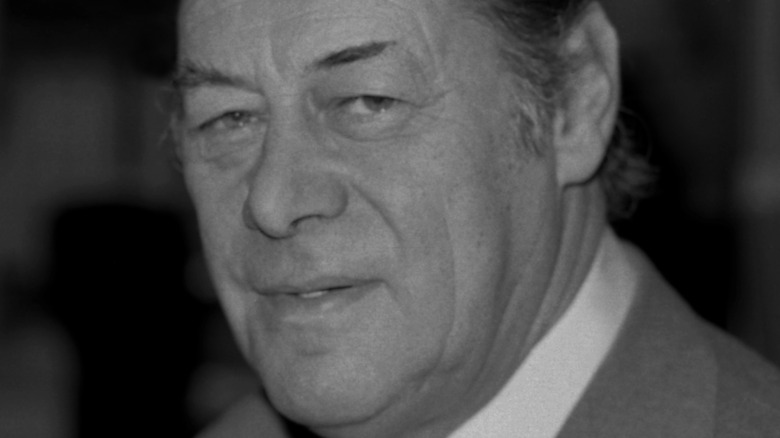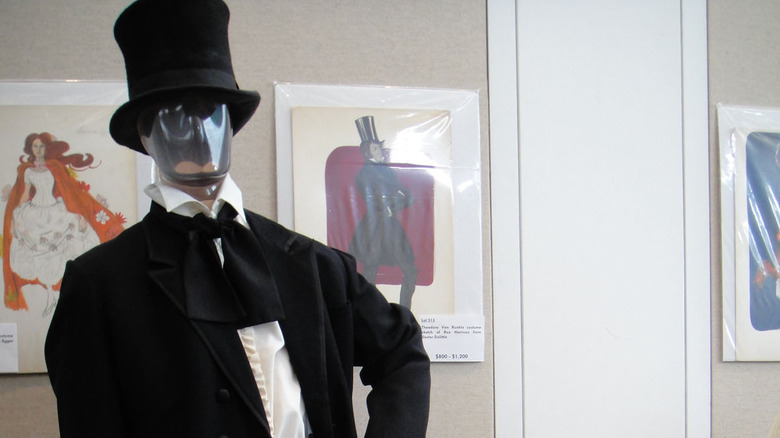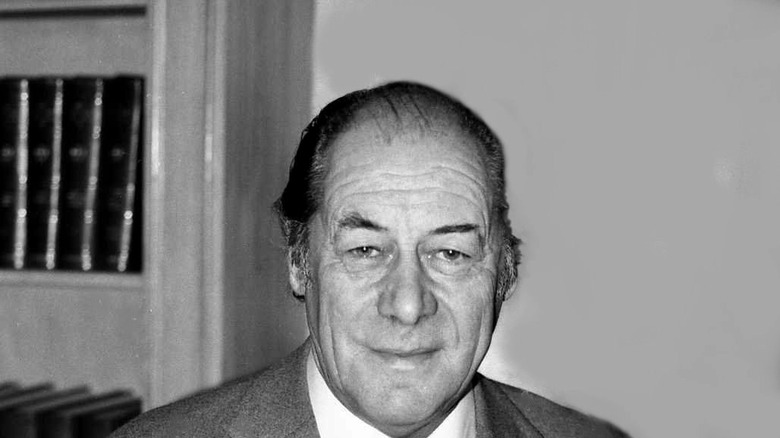Doctor Dolittle Basically Ended Rex Harrison's Hollywood Career
Big-budget musicals were all the rage in the late 1950s and '60s. It was this era that gave us iconic films like "My Fair Lady" and "The Sound of Music," after all. But the bad karma of the 1967 Rex Harrison disaster "Doctor Doolittle," based on the books of the same name, may have brought that era to an end.
So, let's talk about one of Hollywood's major flops of this time. Released in 1967, 20th Century Fox's "Doctor Dolittle" was both a major pain to make and a major failure for the studio once it was released. To start with, the film's budget ballooned beyond all reason to three times its original $6 million figure (via The Hollywood Reporter). The 1,300 animals needed for the film had a series of mishaps throughout, with a giraffe even dying during the shoot. When star Rex Harrison wasn't allegedly getting urinated on by animal actors on set, he was hurling racist and anti-Semitic insults at co-stars Geoffrey Holder and Anthony Newley (via Matthew Kennedy in his book "Roadshow!: The Fall of Film Musicals in the 1960s"). And when the film was released, it bombed so badly at the box office that it nearly killed 20th Century Fox as a studio, taking Harrison's major screen career with it. Though he continued his film career until 1982, Harrison was never the big star he had once been. Toward the end of his life, he had more success acting on Broadway and the West End (via Britannica).
Doctor Dolittle was a major disaster from start to finish
The film was, to put it lightly, a hassle. The "Doctor Dolittle" shoot started out in Wiltshire, England, where it typically rained approximately 15 days out of every month, causing filming delays. Several of the specially trained animals had to be transported from the U.S. to the U.K., and filmmakers hadn't anticipated that this would trigger the U.K.'s quarantine laws, causing more delays. British explorer Ranulph Fiennes (a distant cousin of the actor Ralph Finnes) was so upset with the studio's decision to create a 20-foot dam to make a lake look bigger that he tried, unsuccessfully, to have it destroyed with explosives, writes The Hollywood Reporter. It was par for the course for the film's issues.
And the disasters didn't end after "Doctor Dolittle" was released. The film was a box office failure, just barely making half of what it needed to break even, let alone make a profit. Furthermore, the film's reviews were almost universally terrible. The film's lack of profit wasn't even the worst of it, however. That would be the merchandising. Over 300 unique products were created for the film, and $200 million worth of merchandising stayed on shelves, unsold. (Compare that to George Lucas, who made an unexpected fortune on "Star Wars" movie merchandise, writes The Hollywood Reporter).
Rex Harrison's Hollywood career never really recovered
After earning an Oscar for best actor shortly before "Dr. Doolittle" for his role in "My Fair Lady," Rex Harrison considered himself a bonafide film star. Thus during the filming of "Dr. Doolittle," he felt entitled to make unreasonable demands, like threatening to quit if actor Sidney Poitier didn't join the film's cast — despite the fact that Poitier had nothing to do with the project at the time (via "Roadshow!: The Fall of Film Musicals in the 1960s"). After the film's release and failure, Harrison's film career took a definite downturn.
Harrison continued to act on screen for another 15 years, though his next few projects consisted of a series of flops, which included 1969's "Staircase." In that film, he played gay hairdresser Charles Dyer in a performance famed film critic Roger Ebert slammed at the time, via his review, as "a parody of homosexual mannerisms." Harrison retired from the screen in 1982, restricting himself solely to Broadway and West End theatrical productions, where he found a degree of success that had eluded him on the silver screen — especially with his 1983 performances as Captain Shotover in George Bernard Shaw's "Heartbreak House." Harrison was knighted in 1989 and starred in a revival production of Somerset Maugham's "The Circle" up until one month before he died in 1990 (via Britannica).


